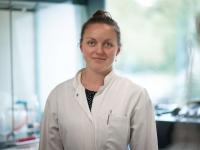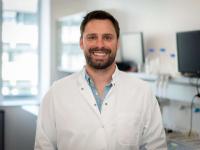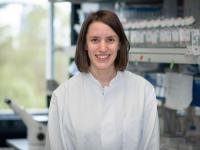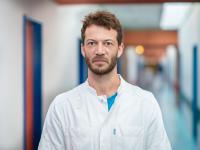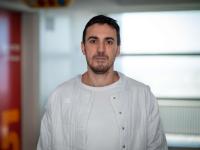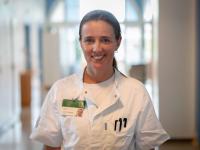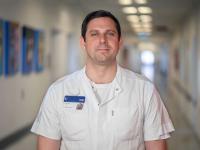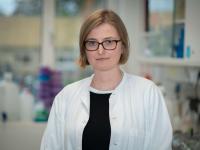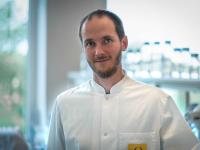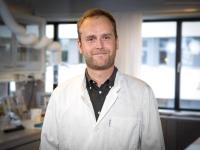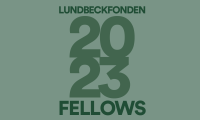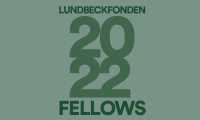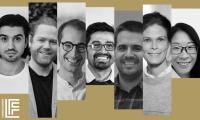The Lundbeck Foundation awards a record number of fellowships
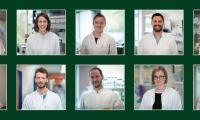
From today, ten promising research talents can call themselves Lundbeck Foundation Fellows. They each receive DKK 10 million to conduct their research over the next five years, making this the largest Lundbeck Foundation Fellows programme ever.
This is the thirteenth time the Lundbeck Foundation is awarding fellowships and, yet again, the recipients are young researchers, although all are well-established in their own fields.
‘Our fellowship programme is all about boosting and developing talent. We want to give the most promising scientists of the younger generation – those on the cusp of starting up their own research group and in the process of developing as research directors – the freedom to develop their own research interest, which may form the basis for the rest of their career,’ says Jan Egebjerg, Director of Research at the Lundbeck Foundation.
‘This year, we were able to expand the programme to award ten fellowships, and the projects range from cancer immunotherapy to brain-gut communication. But what all of the ten projects have in common is the potential to make a significant difference to our understanding of each field,’ he says.
The ten fellows are:
Elisabeth Rexen Ulven, Assistant Professor of Medicinal Chemistry, Department of Drug Design and Pharmacology, University of Copenhagen
Around a third of all drugs on the market work by activating – or blocking – so-called GPCR receptors. Human beings have around 400 different types of these receptors, located on the surface of cells all over their bodies. In her research project, Elisabeth will seek to develop molecules that act on the group of GPCR receptors that affect, for instance, regulation of inflammation and appetite. The aim is to find out whether these receptors could be a target for new drugs.
Read Elisabeth’s profile
Watch a video
Thomas Qvistgaard Jepps, Assistant Professor, Department of Biomedical Sciences, University of Copenhagen.
With his research, Thomas will seek to identify what goes wrong when people develop hypertension, and how we can improve therapies for patients who do not respond to standard treatment. He has demonstrated that arterial contractility is regulated by proteins distributed over the surface of the muscle cells that drive changes in arterial diameter. He aims to investigate how this mechanism contributes to hypertension and whether redistribution of the proteins on the muscle cells could improve current therapies.
Read Thomas’s profile
Watch a video
Cordelia Imig, Assistant Professor, Department of Neuroscience, Faculty of Health and Medical Sciences, University of Copenhagen
Cordelia’s research will focus on how communication between the gut and the brain helps keep us healthy. Errors in the exchange of signals between the brain and the gut may contribute to the development of a range of serious diseases, and she will focus on a particular sub-group of cells in the gut’s signalling resources – the so-called enterochromaffin cells which release neurotransmitters such as serotonin. The aim is to understand the mechanisms behind the release of these neurotransmitters, and how they are transmitted to the nervous system, in order to identify how numerous diseases are affected by signalling in the gut.
Read Cordelia’s profile
Watch a video
Daniel Hargbøl Madsen, Junior Research Group Leader, National Center for Cancer Immune Therapy, Department of Oncology, Herlev Hospital
Daniel aims to investigate why cancer immunotherapy works optimally in some patients and kills all of the patient’s cancer cells yet only has a limited effect in others. A tumour consists of cancer cells, healthy cells and connective tissue, and Daniel’s theory is that, in certain cases, the healthy cells and the connective tissue prevent the immunotherapy from working. The aim of his research is to identify the mechanisms that curb immunotherapy in order to improve cancer treatment.
Read Daniel’s profile
Watch a video
Marco Donia, Staff Oncologist and Junior Research Group Leader, National Center for Cancer Immune Therapy, Herlev and Gentofte Hospital, and Associate Professor, Institute for Clinical Medicine, University of Copenhagen
Marco’s research will focus on how to improve the success rate of cancer immunotherapy. Immunotherapy is about strengthening and activating the body’s own immune system so that it recognises and attacks cancer cells to best effect. Immune cells kill cancer cells by releasing a range of substances – some are toxic to cancer cells, while others stimulate them. The aim of Marco’s research is to identify and study the effect of the substances that stimulate the cancer cells and to attempt to minimise their effect.
Read Marco’s profile
Watch a video
Catharina Lerche, Senior Scientist, Department of Dermatology, Copenhagen University Hospital, Bispebjerg and Frederiksberg
It turns out that a new method of analysis used to detect fraud in the food industry can quickly and safely improve diagnosis of a number of types of cancer. It appears that the composition of fats in cancer cells is different from fat composition in healthy cells, and Catharina’s research project will investigate whether the method can also be used to diagnose various forms of skin cancer. The method Catharina uses is called Rapid Evaporative Ionisation Mass Spectrometry (REIMS) and it enables rapid analysis of the composition of, for instance, fat cells in extremely small melanomas.
Read Catharina’s profile
Watch a video
Tor Biering-Sørensen, Associate Professor, Department of Biomedical Sciences, Faculty of Health and Medical Sciences, University of Copenhagen and Research Director, Cardiovascular Non-Invasive Imaging Research Laboratory, Department of Cardiology, Herlev and Gentofte Hospital
Tor will investigate whether we can prevent heart disease by offering prophylactic treatment to elderly people at high risk of developing cardiac disorders. He is an expert in new measuring methods such as echocardiography, and his aim is to investigate whether this method can be used to predict cardiac disorders such as cardiac arrest, thrombosis and dangerous types of arrhythmia. As part of his study, Tor will look into whether it makes sense to offer all Danes over the age of 65, who have already been diagnosed with hypertension or diabetes, a sophisticated ultrasound scan of the heart and then begin prophylactic treatment, if necessary.
Read Tor’s profile
Watch a video
Joanna Kalucka, Assistant Professor, Aarhus Institute of Advanced Studies (AIAS) and Department of Biomedicine, Aarhus University
Joanna’s research will focus on endothelial cells. These are the cells that form the inner wall of our blood vessels, and they play a major role when our blood vessels are affected by, for instance, obesity. Obesity causes numerous complications such as type 2 diabetes, cardiovascular disorders and an increased risk of certain forms of cancer, and Joanna aims to investigate how, in some cases, changes in these endothelial cells lead to inflammation in obese people. It is hoped that a better understanding of endothelial cells will inspire the development of new forms of treatment for complications of obesity.
Read Joanna’s profile
Watch a video
Lasse Sommer Kristensen, Assistant Professor, Department of Molecular Biology and Genetics, Aarhus University
RNA can be either linear or circular, and it is thought that the circular RNA could have implications for the development of cancer. Lasse will study cells from various forms of leukaemia and lymphoma to see how much circular RNA there is in these cells compared with healthy cells. The aim is to gain a better understanding of what goes wrong inside the cancer cells, at a molecular level, so that we can hopefully increase the precision of our diagnoses and identify the role of circular RNA in the development of the various forms of cancer.
Read Lasse’s profile
Watch a video
Tore Bjerregaard Stage, Associate Professor, Clinical Pharmacology and Pharmacy, Department of Public Health, University of Southern Denmark
Tore’s research will focus on precision medicine, i.e. how we can tailor therapies to the individual patient to ensure that the drugs work to the best possible effect. He aims to study how changes to blood sugar levels in connection with treatment of diabetes can affect the metabolisation of other drugs being taken by the diabetes patient for the condition. He will investigate whether patients recently diagnosed with type 2 diabetes metabolise, for instance, anticoagulants faster after their treatment has begun. In time, it is hoped that his results will help ensure more precise dosage of medicines to give the optimum effect with as few side effects as possible.
Read Tore’s profile
Watch a video
For further details please contact:
Jan Egebjerg, Director of Research at the Lundbeck Foundation, tel. +45 3912 8009 or je@lundbeckfonden.com
Pernille Thorborg Jasper, Media Relations Manager at the Lundbeck Foundation, tel. +45 2118 9132 or ptj@lundbeckfonden.com
